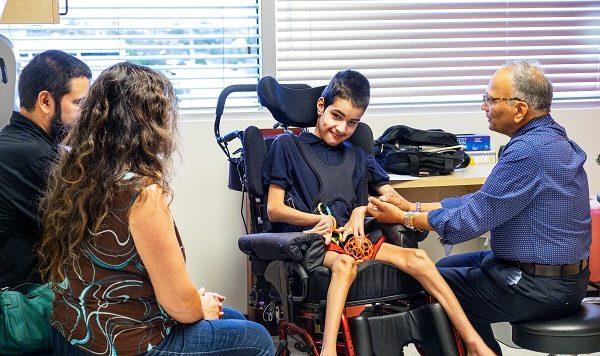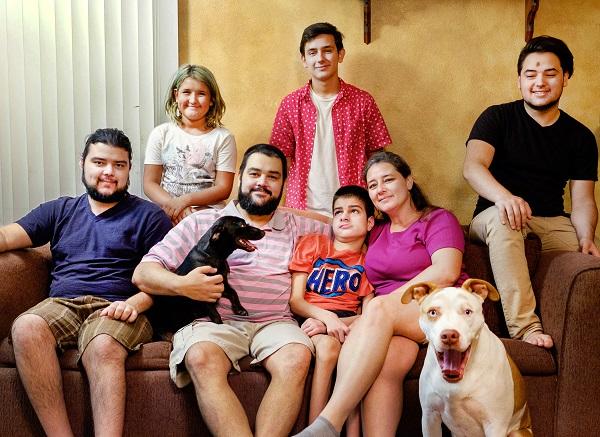The Power of Connection Among Parents of Medically Complex Children
by Erica Hess
Originally published on delltechnologies.com
Imagine if your child were having severe seizures and not walking or talking. Now imagine you had no idea why this was happening—and would need to wait 10 years to discover the answer.
This was Stephanie Rankin’s experience with her son Beorn, the fourth of her five children. Fear eventually morphed into frustration and loneliness over her decade of searching with her husband for a diagnosis.
“As a parent, you want to fix it. Without a diagnosis, we didn’t have a treatment or a way to help him or advocate for him,” said Rankin. “The not knowing is the hardest struggle.”
Technology eventually brought answers. At the Translational Genomic Research Institute’s (TGen) Center for Rare Childhood Disorders, neurologist Vinodh Narayanan was able to analyze Beorn’s genetic data – using high-performance computing – to arrive at a diagnosis. Beorn had DNM1, an extremely rare genetic disorder that would’ve been impossible to identify with the technology available when he was born in 2004. Over the last six years, TGen and Dell have partnered to reduce the amount of time it takes to sequence and analyze genomes.
Technology advancements have enabled children to be diagnosed as early as 15 months of age.
“With these earlier diagnoses, we see parents with younger children doing things…light therapy, for example…that we wish we could have done earlier on. Maybe [Beorn] would be the kid sitting up a little better,” Rankin said.
However, Rankin is focused on the future and enjoying—and advocating for—her son. While there is no cure for DNM1, the diagnosis brought something else Rankin was looking for: connection. Again, this came through technology. On Facebook, Rankin found another mother with two children affected by DNM1. They began sharing experiences and became fast friends. They’ve grown their private Facebook group, “DNM1 Dynamos-Connection DNM1 Families” to include parents of 25 children across the globe.
Rankin also notes a new website is available for those not on Facebook.
“Now we have all these different families in the U.S., the U.K., Australia, Canada and France… so it’s not just what the U.S. doctors are thinking on this,” said Rankin. “We’re comparing notes on how medications combine and work together. We can compare symptoms. We see patterns, like none of them sleep well at night.”
Her Facebook group members have connected one another to resources, including opportunities for studies at TGen. And their open, honest dialogue has been invaluable.
“Now I have that special group where our kids have the same thing affecting them. Hearing that another DNM1 kid can walk, for example—that gives us something to aspire to.”



